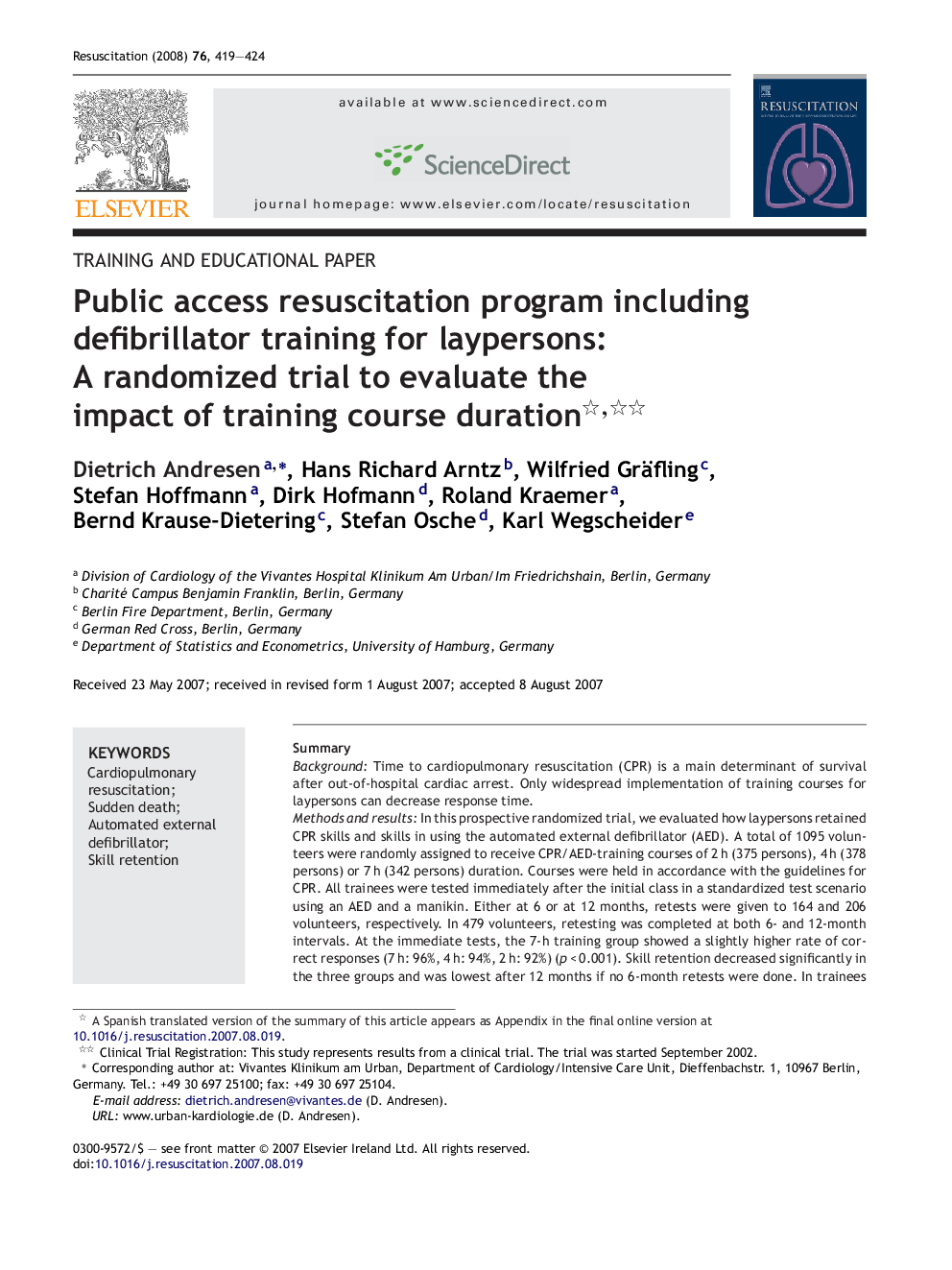| Article ID | Journal | Published Year | Pages | File Type |
|---|---|---|---|---|
| 3010598 | Resuscitation | 2008 | 6 Pages |
SummaryBackgroundTime to cardiopulmonary resuscitation (CPR) is a main determinant of survival after out-of-hospital cardiac arrest. Only widespread implementation of training courses for laypersons can decrease response time.Methods and resultsIn this prospective randomized trial, we evaluated how laypersons retained CPR skills and skills in using the automated external defibrillator (AED). A total of 1095 volunteers were randomly assigned to receive CPR/AED-training courses of 2 h (375 persons), 4 h (378 persons) or 7 h (342 persons) duration. Courses were held in accordance with the guidelines for CPR. All trainees were tested immediately after the initial class in a standardized test scenario using an AED and a manikin. Either at 6 or at 12 months, retests were given to 164 and 206 volunteers, respectively. In 479 volunteers, retesting was completed at both 6- and 12-month intervals. At the immediate tests, the 7-h training group showed a slightly higher rate of correct responses (7 h: 96%, 4 h: 94%, 2 h: 92%) (p < 0.001). Skill retention decreased significantly in the three groups and was lowest after 12 months if no 6-month retests were done. In trainees who did undergo retesting at 6 months, skills did not deteriorate at 12 months. There were no significant differences between the three groups (overall correct responses: 2 h: 72%, 4 h: 73%, 7 h: 74%) (ns).ConclusionsA 2-h class is sufficient to acquire and retain CPR and AED skills for an extended time period provided that a brief re-evaluation is performed after 6 months.
